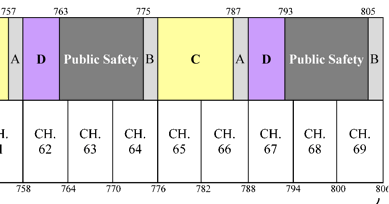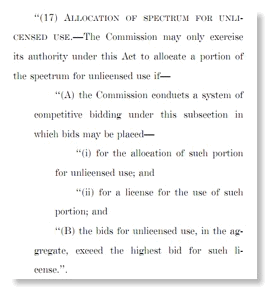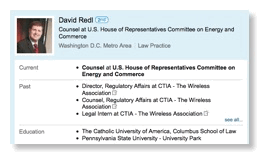Spectrum Innovation Act of 2011:
Will the "unlicensed auction" provisions lead to another "D Block Auction" fiasco?

What if they had an auction and no one came? This is basically what happened in the 2008 D block auction where FCC declared, “The provisionally winning bid for the D Block license, however, did not meet the applicable reserve price and thus did not become a winning bid.”
Of course in reality only one firm bid showing essentially zero interest in the package offered. Why? The basic reason was that the package that was up for sale was so poorly defined that a potential bidder with an MBA on his staff could not possibly estimate either potential costs or possible income. It was unclear what level of service the D block owner had to provide to public safety community and it was unclear if he would get any income from public safety use of D block spectrum that would, in effect, deny commercial use for a period. Could the licensee charge for public safety use of D block in excess of x% occupancy? At the time of the auction no one knew.
FireceWireless described the new legislation as follows:
The proposal to require unlicensed spectrum to be auctioned is drawing fire from the tech community. In essence, companies that might be interested in building products to work on unlicensed spectrum would be required to pay for the spectrum despite the fact that they wouldn't receive any exclusive rights to it. Confusingly, if the total value of all bids for such spectrum were to exceed the highest single bidder, the spectrum would then become unlicensed. If, however, a single bidder sought exclusive use of the spectrum and outbid other bidders wanting the spectrum to be unlicensed, the spectrum would then go to the single bidder. (emphasis added)

People opposed to this provision also compare it to the Unlicensed PCS (U-PCS) rules the Commission adopted in 1993 and which were a dismal failure. Opponents blame the fiasco over the user fees for equipment in the band which would have been about $5/unit.
These rules, adopted at the request of industry that drafted them were amazing complex and included provisions for both “isochronous devices” and “asynchronous devices” as requested by the commenting parties. My personal view on the failure of these rules is that they were much too complex, totaling over 3800 words and the parties requesting them did not realize that once they were enshrined in 47 C.F.R. any changes to them were protected by both the full faith and credit of the APA and the Commission’s long standing near indifference to technical rulemakings - especially when it gets distracted by “sexier” things such as DTV and broadband. By comparison, the original ISM band rules that spawned both Wi-Fi and Bluetooth consisted of exactly 398 words! I think a key factor of U-PCS’ failure was the extreme complexity and inflexibility that was demanded by the petitioners and FCC acceded to.
Given that most unlicensed bands are “damaged goods” as previously stated, and that most unlicensed bands are really very specific provisions for narrow spectrum slivers, e.g. 15.233, requiring auctions for any new unlicensed band seems like regulatory overkill. On the other hand allowing such type of auctions and giving guidances of what considerations should be used in deciding on them might be constructive.




![Validate my RSS feed [Valid RSS]](valid-rss-rogers.png)

